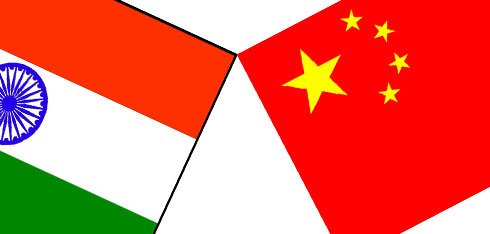
As per Angus Maddison’s pioneering OECD study, India and China had nearly 50 percent of the global GDP as late as the 1820‘s. Hence, India and China are not emerging or rising powers. They are merely retrieving their original position or re-emerging markets. In 1990, the share of G-7 in world GDP [on PPP base] was 51 % and that of the emerging markets was 36 %. But in 2014 it is the reverse.
Professor Vaidyanathan, retired Professor of Finance and Control at Indian Institute of Management, Bangalore explains in his analysis the crisis faced by the West is primarily due to forgetting a six letter word called ‘saving’ which is a result of forgetting another six letter word called ‘family’. The West has nationalized families over the last sixty years. Old age, ill health, single mother, child care everything is the responsibility of the State. When family is a ‘burden’ and children an ‘encumbrance’, society can be said to be in a state that should cause concern. Actually, for long household savings has been negative in the USA.
Five trends which will have far-reaching implications for the West and India are the following:
- The West’s problems are related to the decline of the family as an institution and household savings.
- Demography is increasing the proportion of old people in the population.
- Rising longevity is leading to a social security crisis which will bankrupt governments.
- The decline of the Church and belief systems – both in Europe and US – could have major implications.
- The Westphalia Consensus about the sovereignty of nations which are not western/white is over.
These trends have not been dealt with in full detail in the main reports possibly because they are focused more on economics, energy etc. But the building blocks of any civilization start with the family, and this has become an issue in the western world, without alternate institutions emerging.
We should recognize that for most of the Indian elite, their umbilical cords are linked to the west. Many of them are/were educated in the US or Europe, and most of them have their children studying or working there. Due to colonial genes, acceptance and recognition by the West is critical for average middle class Indians.
The danger is that we are going to replicate their failed models when they are in decline. They will try to sell us everything they have, and we will buy it because of our colonial genes. They will hire more Indians to head global companies as showpieces in order to penetrate our markets. We have seen that already happening in the last decade.
The reality that the West is in decline and many of its institutions are failing has still not struck us and we will continue to try and imitate them – including their dysfunctional family systems. We should recognize that we are a civilization and not just a market. Today, funds are in search of markets and not the other way round. Instead of heading global institutions, we should perhaps look for the alternatives like blockchain technology to solve local problems.
As per professor, civilizationally, we are nearer to the East than the West. We should take the lead along with others in the East to create alternative institutions to the World Bank, the IMF and the UN. The need is to recognize that the old debate about big business or big government is out of fashion. Our ability to look beyond Marx and market into our thriving communities and bazaars will provide us answers to many issues. I would go one step further and ask is it wise to ask help from the corporations and governments when we have chance to exit the system, I strongly believe we could find better solutions using blockchain technology.
References:
- The World Economy: A millennial Perspective—Angus Maddison OECD Development Centre Studies –2007
- https://rvaidya2000.com/